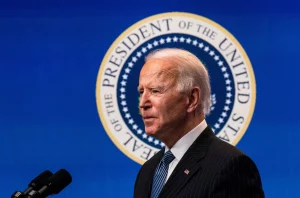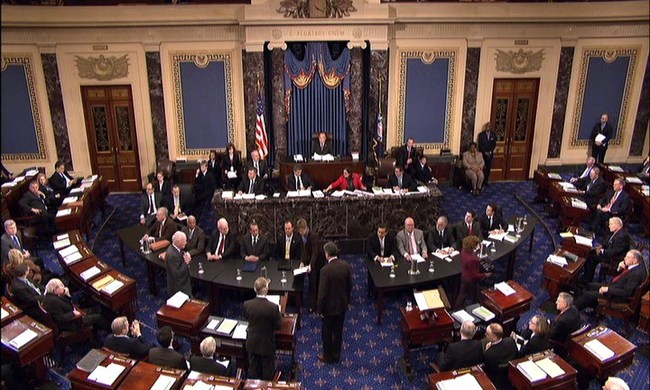Introduction Welcome to a deep dive into the political discourse surrounding U.S. foreign policy. Our guide is Alex Thompson, a seasoned political analyst with over a decade of experience in dissecting U.S. foreign policy. His insights into the political discourse surrounding Biden’s Israel strategy offer a unique perspective on the growing dissent among Senate Democrats.
Introduction
Welcome to a deep dive into the political discourse surrounding U.S. foreign policy. Our guide is Alex Thompson, a seasoned political analyst with over a decade of experience in dissecting U.S. foreign policy. His insights into the political discourse surrounding Biden’s Israel strategy offer a unique perspective on the growing dissent among Senate Democrats.
Understanding Biden’s Israel Strategy
President Biden’s approach to Israel is rooted in a long-standing commitment to ensuring its security while also advocating for a two-state solution to the Israeli-Palestinian conflict. This strategy, however, has been met with varying degrees of approval and dissent within his own party, particularly among Senate Democrats.
The Role of Senate Democrats in U.S. Foreign Policy
Senate Democrats play a crucial role in shaping U.S. foreign policy. Their influence extends from voting on international treaties to confirming presidential appointments for key foreign policy positions. As such, their views on Biden’s Israel strategy carry significant weight.

Image by: https://pyxes.nymag.com
The Growing Dissent: Causes and Implications
The dissent among Senate Democrats stems from a variety of factors. Some believe that Biden’s strategy does not do enough to address Palestinian rights, while others argue that it fails to adequately support Israel’s security needs. This dissent could have far-reaching implications, potentially influencing future U.S. foreign policy decisions regarding Israel.
Case Studies of Dissent
Several Senate Democrats have publicly voiced their dissent. Senator Bernie Sanders, for example, has criticized Biden’s approach for not doing enough to address the humanitarian crisis in Gaza. On the other hand, Senator Robert Menendez has expressed concern that the strategy does not sufficiently support Israel’s security needs.
The Impact on U.S.-Israel Relations
The growing dissent among Senate Democrats could impact U.S.-Israel relations. If these dissenting voices gain traction, it could lead to a shift in U.S. policy towards Israel, potentially affecting everything from foreign aid to diplomatic support.
Looking Ahead: The Future of U.S. Foreign Policy
The future of U.S. foreign policy towards Israel will likely be shaped by this ongoing debate within the Democratic Party. Whether this leads to a significant policy shift remains to be seen, but what is clear is that the discourse surrounding Biden’s Israel strategy will continue to evolve.
Table: Summary of Key Points
| Heading | Key Points |
|---|---|
| Understanding Biden’s Israel Strategy | Biden’s strategy is rooted in ensuring Israel’s security and advocating for a two-state solution. |
| The Role of Senate Democrats in U.S. Foreign Policy | Senate Democrats play a crucial role in shaping U.S. foreign policy. |
| The Growing Dissent: Causes and Implications | Dissent among Senate Democrats stems from differing views on how to address Palestinian rights and Israel’s security needs. |
| Case Studies of Dissent | Senators Bernie Sanders and Robert Menendez represent differing views within the Democratic Party. |
| The Impact on U.S.-Israel Relations | The dissent could impact U.S.-Israel relations, potentially influencing foreign aid and diplomatic support. |
| Looking Ahead: The Future of U.S. Foreign Policy | The future of U.S. foreign policy towards Israel will likely be shaped by this ongoing debate. |

















Leave a Comment
Your email address will not be published. Required fields are marked with *